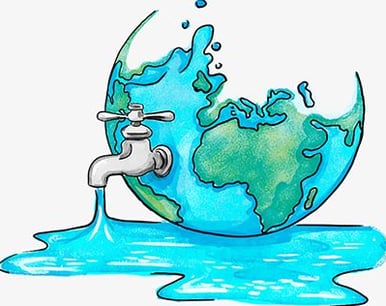How a Water Audit Is Beneficial?
Discover the untapped advantages with our insights into the benefits of water audits. Optimize resource use and contribute to a sustainable future.
1/19/20243 min read


In the realm of efficient resource utilization, businesses and organizations are increasingly turning their attention to Water Audits as a powerful tool for sustainable practices and cost savings. In this comprehensive guide, we delve into the profound advantages of conducting a water audit, shedding light on how this practice can revolutionize resource management.
Understanding the Essence of a Water Audit
A water audit is a meticulous examination of water usage patterns within a given entity, aiming to identify inefficiencies and opportunities for improvement. This strategic analysis encompasses various aspects, including water consumption, distribution, and potential points of leakage. By undertaking a thorough water audit, businesses position themselves to make informed decisions that positively impact both their environmental footprint and financial bottom line.
Cost-Efficiency Through Leak Detection and Repair
One of the primary advantages of a water audit lies in its ability to uncover hidden leaks that may go unnoticed in day-to-day operations. Water leaks not only contribute to wastage but also lead to inflated utility bills. Through the precise identification and prompt repair of leaks, businesses can significantly reduce water consumption and subsequently cut down on operational costs.
Leveraging Technology for Precise Detection
With advancements in technology, conducting a water audit has become more sophisticated and accurate. Utilizing state-of-the-art tools such as flow meters, pressure gauges, and leak detection devices, businesses can pinpoint even the smallest leaks in their water systems. This proactive approach not only saves resources but also establishes a foundation for sustainable practices.
Optimizing Water Consumption for Environmental Sustainability


In an era where environmental responsibility is a top priority, a water audit serves as a crucial step towards sustainable business practices. By understanding and optimizing water consumption, organizations can actively contribute to conservation efforts and reduce their ecological impact. This commitment to sustainability not only enhances corporate social responsibility but also resonates positively with environmentally conscious consumers.
Aligning with Green Initiatives
Businesses that prioritize environmental sustainability through water audits align themselves with global green initiatives. This alignment not only enhances the brand image but also positions the organization as a leader in responsible resource management. As consumers increasingly favor eco-friendly businesses, the positive public perception can translate into increased customer loyalty and market share.
Regulatory Compliance and Risk Mitigation
In many regions, adherence to water usage regulations is not only ethically imperative but also legally mandated. Failure to comply with these regulations can result in severe penalties and damage to a business's reputation. A water audit not only ensures compliance with existing regulations but also identifies potential risks, allowing businesses to proactively address issues and avoid legal repercussions.
Proactive Risk Mitigation
Identifying potential risks through a water audit enables businesses to take preemptive measures. Whether it's addressing outdated infrastructure or implementing water-saving technologies, proactive risk mitigation safeguards the business against unforeseen challenges and fosters long-term resilience.
Holistic Approach to Resource Management
Beyond the immediate benefits of cost savings and environmental responsibility, a water audit encourages a holistic approach to resource management. By understanding the intricate interplay between water usage and various operational facets, businesses can optimize overall resource efficiency, setting the stage for comprehensive sustainability.
Integrating Water Management into Business Strategies
A successful water audit is not merely a standalone practice but an integral part of a broader sustainability strategy. By seamlessly integrating water management into overall business strategies, organizations can create a roadmap for long-term success, balancing economic growth with responsible resource utilization.
Conclusion: A Water Audit - A Strategic Imperative for Businesses
In conclusion, a Water Audit is not just a reactionary measure but a strategic imperative for businesses committed to long-term success. The manifold benefits, from cost savings to environmental stewardship, make it a powerful tool for organizations striving to outperform competitors and establish themselves as leaders in sustainable practices.
FAQs
Are water audits only for large businesses, or can individuals benefit from them?
Water audits are beneficial for both large businesses and individuals. They help identify wastage and promote efficient water use on any scale.
How do water audits contribute to environmental conservation?
Water audits reduce water wastage, preserving ecosystems and ensuring a more sustainable use of this precious resource.
What technologies are commonly used in water auditing?
Smart water meters and IoT applications are commonly used technologies in water auditing, enhancing accuracy and efficiency.
Do water audits have immediate cost-saving benefits?
Yes, water audits often lead to immediate cost savings by identifying and rectifying areas of water wastage.
Are there government incentives for businesses implementing water audits?
Many governments offer incentives and support for businesses adopting water audits, recognizing their contribution to sustainable water management.
Find us at
Block -B, Plot no.- 52, 3rd floor, Sector - 64, City.- Noida, Delhi NCR, Dist.- Gautam Budh Nagar Pin Code.- 210301, India
For Business Enquiry
Services
Leak Detection & Repair
Water Management Plans
Irrigation System Assessments
Water Bill Analysis
Copyright © 2025 Water Audit | All Rights Reserved
